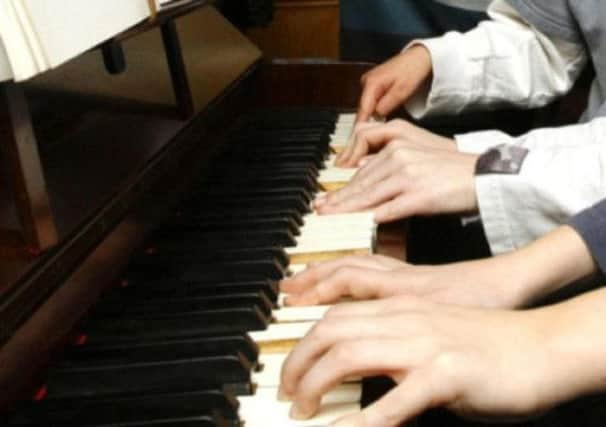Fife music tuition service threat lifted


The radical proposal, which would see instrumental music tuition removed for all pupils except those studying SQA exams, was roundly criticised as “robbing the young people of Fife” of the opportunity to learn a musical instrument.
Scotland on Sunday has been running a campaign to scrap instrumental tuition fees in schools across Scotland, where a postcode lottery system means children can be charged between £95 and £340 to learn a musical instrument – something that was once free to all.
Advertisement
Hide AdMark Traynor, convener of the EIS’s Instrumental Music Teachers’ Network, said: “I’m appalled that Fife Council would even consider this proposal. If passed, this would signal the gradual demise of instrumental tuition in Fife schools. This short-term fix will have lasting consequences for many years to come, robbing the young people of Fife of opportunities embedded in the core of the Curriculum of Excellence.”
Fife musician Panda Su, real name Suzanne Shaw, whose single Alphabet Song was recently featured on the soundtrack to Hollywood blockbuster movie At The End of the Street, said she was shocked at the proposal.
“Fife has an incredible musical heritage and schools here have played a big part in encouraging that,” she said. “Growing up here, it’s something I’ve always been very grateful for and proud to support. Axing music tuition in schools across Fife would have a damaging impact on the future of music in the area.”
Councillor Alex Rowley, leader of Fife Council, told Scotland on Sunday this weekend that the council would not go ahead with the proposal, which is part of a wide range of cuts the authority is currently considering.
“We have met with education officials in the last few days looking at everything they have suggested in terms of cuts. My view is that if you were to take this option, you would in effect be wiping music education out. This proposal will remain exactly that. It will not figure in our budget going forward. It will not happen.”
Scottish Conservative candidate for the upcoming Dunfermline by-election James Reekie, a piper in several Fife pipe bands, said: “This proposal makes no sense whatsoever. It will come at huge detriment to local children, all of whom deserve the opportunity to learn a musical instrument. Fife would live to regret this decision deeply.”
Advertisement
Hide AdIn June, Scotland on Sunday’s Let The Children Play campaign notched up a major victory with the ending of tuition fees for thousands of schoolchildren sitting Scottish Qualification Authority music exams.
Five local authorities in Scotland had been charging S4 to S6 students sitting SQA music exams instrumental tuition fees of up to £340 a year, even though the exams are part of the national curriculum and playing an instrument counts for up to 60 per cent of the final mark.
Advertisement
Hide AdThe scrapping of Scottish Qualifications Authority tuition charges formed part of a report of 17 recommendations that were made to the Scottish Government by the instrumental music group – a parliamentary working group set up in January by education secretary Mike Russell in order to “get a grip” on instrumental music tuition in Scotland, in response to this newspaper’s campaigning on the issue, which sparked a parliamentary debate, investigations into charging practices and the setting up of a £1 million instrument fund for schools.